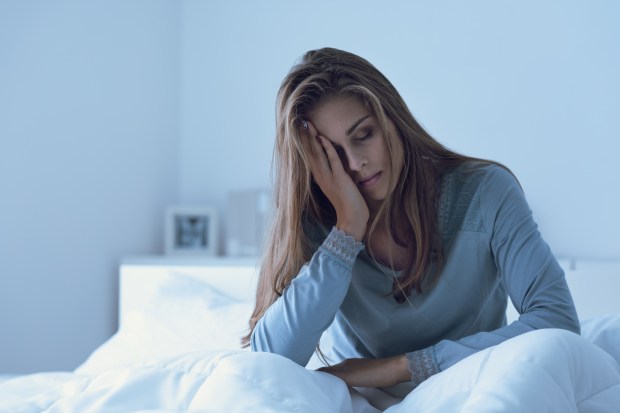This is why you suffer ‘hangxiety’ after drinking – and how to deal with it

IF you wake up the morning after drinking with guilt, shame and fear, you’re not alone.
"Hangxiety" - anxiety on a hangover - is a real phenomenon, experts say.
But it’s a “hidden problem” that's not well researched.
Although it is only temporary, lasting around a few hours to a day, experts fear it is linked to greater odds of alcohol dependence.
Hangxiety is triggered by the change in chemicals in the brain that comes with drinking alcohol.
When we sip on our favourite cocktail, wine or beer, it changes the activity of neurotramissitres in the brain.
These brain chemicals are normally distinctly balanced so we can make decisions clearly, focus and emotionally process things.
Dr Sally Adams, a lecturer in the Department of Psychology Addiction and Mental Health Group, University of Bath, told The Sun: “When we drink alcohol the balance of these neurotransmitters changes.
“One of the main ones that is activated is Gaba (gamma-aminobutyric acid). That’s what we call a major inhibitory neutrotramissiter. Basically it just reduces brain activity. It’s job is to down regulate.
“That’s why after the first couple of drinks we feel more relaxed and sociable.”
As we drink more, the release of another neurotransmitter called glutamate is suppressed.
Glutamate is an excitatory neurotransmitter that helps with emotional processing, memory, and sensing fear.
As both these chemicals are out of whack, it generally leaves us feeling relaxed, careless, stumbling over things and encouraged to buy more drinks.
You get caught in this vicious cycle of what we would call self-medicating. You’re then at-risk of developing an alcohol related problem.
Dr Sally Adams
While this is part and parcel of a night on the town, the next day it becomes a problem.
The brain senses that Gaba has increased, while glutamate has been suppressed.
“The brain is desperate to try and correct that, by giving us lower Gaba and increased glutamate”, Dr Adams said.
“Instead of going back to normal the next day at the level before we started drinking, our brain starts overcompensating.
“This is why we have feelings of anxiety and stress.
“People can experience that anxiety as regret and shame about what happened. Panic or wondering what you said or did. It can be general, increasing anxiety about other things unrelated to drinking.”
Dr Adams said there isn’t a reliable figure for how many people suffer with dread after drinking, probably because it’s harder to quantify an emotion over a physical symptom like a headache.
“There definitely needs to be more research in this area to find out how many suffer from this” she warned.
“I'd say it's a hidden problem associated with a hangover. It’s seen as quite trivial, but it could do with some recognition.”
Can you prevent hangxiety?
The billion dollar question - is hangxiety preventable?
Dr Adams said: “The only real good answer is to drink in moderation or not at all. You can’t change how alcohol affects the brain.”
There is a lack of research into the effects of alcohol on the brain and body the next day, despite an abundance of studies into its long-term harms.
But one study suggests that hangxiety may be more common in introverted people.
Using 100 drinkers, researchers at the University of Exeter found people who scored “highly shy” were more likely to report anxiety the day after having around six units of alcohol.
“These findings also suggest that hangxiety in turn might be linked to people’s chance of developing a problem with alcohol", in 2018.
Dr Adams said it may also be true that people with existing mental health problems are more at risk, and therefore should be wary of how alcohol makes them feel.
The concern is that people who get hangxiety end up facing an alcohol addiction problem.
“There is research about experiencing a hangover and the time to the next drink.
“If you are someone who is anxious and you use alcohol in the short term to relieve it, whilst that might work, the next day it might make you more anxious and then potentially you turn to more alcohol.
“You get caught in this vicious cycle of what we would call self-medicating. You’re then at-risk of developing an alcohol related problem.”
How to deal with hangxiety
Even if you limit your alcohol to prevent an anxiety attack, there is likely to be times it’ll return after birthdays, Christmas or New Year.
So what do you do in those situations?
Dr Adams recommended practising mindfulness - an act of recognising your emotions or thoughts and trying to move on from them.
Most read in Fabulous
She said: “We don't panic when we have positive emotions, we wouldn’t ring our friends and tell them we are excited.
Read More on The Sun
“But we do get panicked about feeling low mood or depression. But really, it's just another emotion we experience as humans.
“The idea of mindfulness is not to make it more than it is, and to realise it can't hurt you and you’ll move on - but that’s easier said than done.”
We pay for your stories!
Do you have a story for The Sun news desk?
Email us at [email protected] or call 0207 782 4104. You can WhatsApp us on 07423 720 250. We pay for videos too. Click here to upload yours








